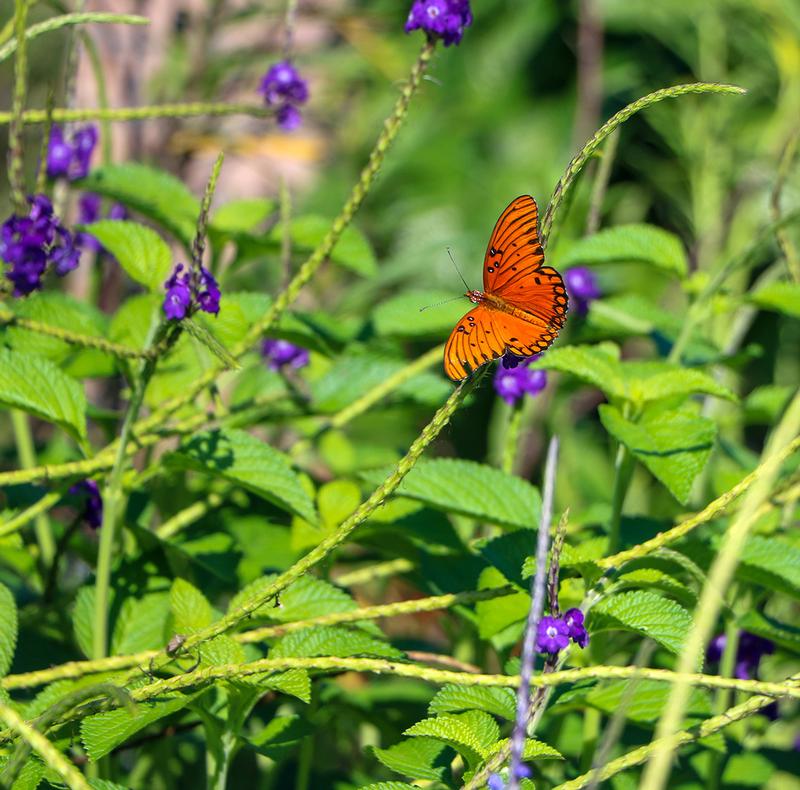
Gardening with Native Plants
What are Native Plants?
Native plants evolved in a specific region. These species have grown in the region for hundreds or thousands of years and are well-suited to the local climate and soils. In Southeast Louisiana, this means native plants are adapted to the region’s soil and tend to be more tolerant of long hot summers with periodic flooding.
Native plants provide valuable ecosystem services such as bioretention and erosion control. Their deep roots anchor soil in place to slow and filter water, reducing flooding during storms.
Gardening with native species can preserve and restore pockets of diverse habitat. They support pollinators like bees and butterflies and offer food and shelter for birds and other local wildlife.
How to Start Native Planting
Prepare Your Garden Space
Choose A Location
Choosing your location wisely will help the plants thrive and make gardening easier! Consider sunlight exposure, drainage and slope, and accessibility.
Prepare The Site
Lay a good foundation. You can test your soil using a kit from a local garden center, or through LSU’s Soil Testing & Plant Analysis Lab. This can let you know if the soil contains heavy metals or requires any amendments.
Design Your Garden Beds
Consider the shape, size and borders of the beds.
Border materials can be treated wood, pavers, flexible edging, sidewalks or driveways, mulch or loose stone.
Follow some planting patterns.
- Group plants in clusters for bigger “wow” factor.
- Place tall plants in the middle or back of the bed.
- Choose plants with different bloom seasons for year-round interest.
- Use ground cover or mulch in areas you leave open for plants to grow into.
Plant Your Garden
Remember to plan according to the appropriate season.
- Spring and Fall are the most common times to plant in Louisiana.
- Buy seeds and transplants locally to ensure they are conditioned to our ecotype.
- Sow seeds in the fall for a head start on your spring garden.
- Potted transplants will establish quicker than seed, but they cost more.
- Do not add a lot of fertilizer when planting, since natives won’t need a lot of encouragement.
- Water regularly until plants are established.
Composting:
Keep your plants healthy and cut fertilizer costs with your very own compost! Turn food scraps, leaves, and grass clippings into nutrients for your flower or vegetable gardens by composting in a pile or bin.
Time to Plant!
Ready to get started? Click here to find sustainably sourced seeds and plants.
Need some inspiration? Visit one of BREC’s native pollinator gardens at the following parks! Please note that the plants on BREC properties aren't available to take home.
Looking to learn more? Click here for extra resources for plants in East Baton Rouge.
Invasive Species
